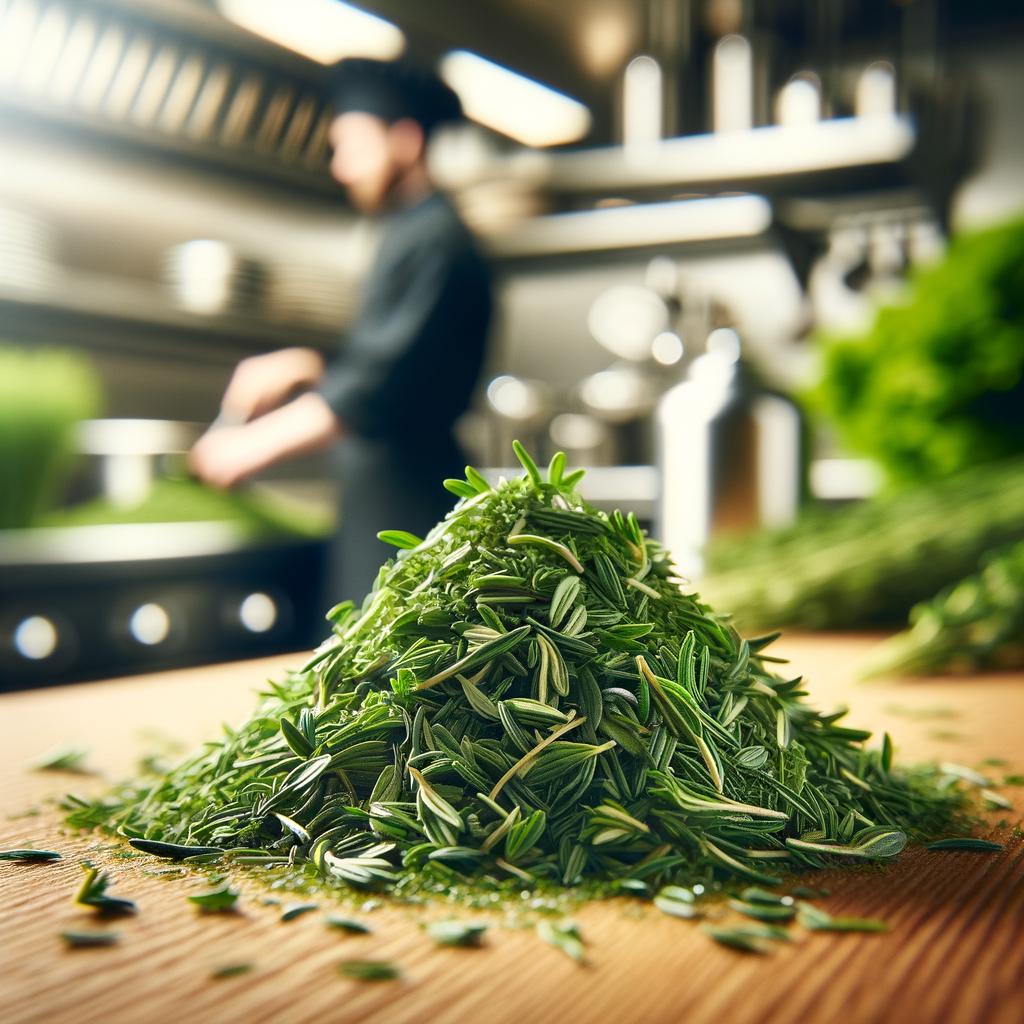Chopped Fresh Tarragon

Description
Tarragon, a classic herb in French cuisine, is a culinary delight that is often overlooked. With its slender, glossy green leaves and delicate, slightly curved shape, it's a feast for both the eyes and the palate. Its texture is soft, yet crisp, and its flavor is uniquely robust. Tarragon offers a sweet anise-like flavor, with a hint of pepper and a slight bitterness that adds depth to dishes. Its aroma is reminiscent of a summer garden, sweet and slightly spicy. The French variety, in particular, is known for its distinctive, more refined flavor compared to its Russian counterpart.
Primary Uses
Tarragon is a key ingredient in many traditional French dishes, including the classic Béarnaise sauce, which wouldn't be the same without its signature tarragon flavor. It's also commonly used in chicken, fish, and egg dishes, where its sweet and slightly spicy flavor complements the delicate flavors of these ingredients. In salads, it adds a punch of flavor that lifts the whole dish. Beyond the culinary realm, tarragon is used in traditional medicine for its potential digestive and sleep-promoting properties. It's also a symbol of love in some cultures, often used in rituals and ceremonies.
History
Tarragon has a romantic history that dates back to ancient times. It was believed to be a remedy for snake bites in Greek mythology, while in the Middle Ages, it was a symbol of compassion. It wasn't until the 16th century that tarragon made its way into French cuisine, where it became a staple herb. Over time, its use has spread across the world, finding its way into a variety of cuisines and dishes. There are stories of knights carrying tarragon during their quests as a token of protection and strength, adding to the herb's rich folklore.
Nutritional Information
Tarragon is not only flavorful but also packed with nutrients. It's a good source of vitamins A and C, and it provides a decent amount of calcium and potassium. Tarragon is also rich in antioxidants, which are beneficial for overall health. Despite its strong flavor, tarragon is low in calories, making it a healthy addition to any dish. Compared to other herbs like basil or parsley, tarragon holds its own with its unique combination of flavor and nutritional value. In moderation, tarragon can be a beneficial addition to a balanced diet, though it's always important to remember that too much of anything can have its downsides.

